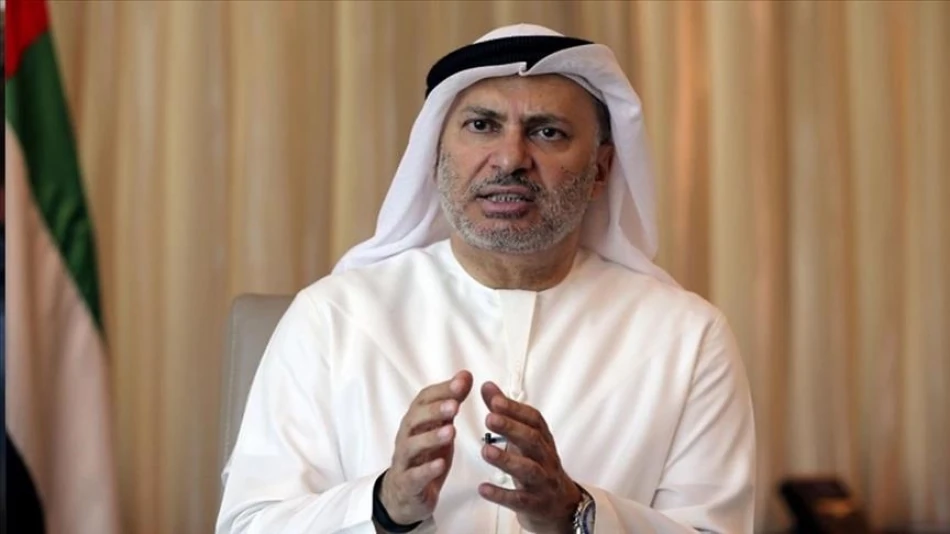
Azerbaijan and Armenia Achieve Historic Peace Deal with Wisdom of UAE's Mohammed bin Zayed
UAE's Quiet Diplomacy Bears Fruit as Azerbaijan-Armenia Peace Deal Takes Shape in Washington
The United Arab Emirates has emerged as a key diplomatic facilitator in the historic peace agreement between Azerbaijan and Armenia being negotiated in Washington, showcasing the Gulf nation's growing influence as a regional peacemaker. The breakthrough follows strategic groundwork laid during high-level meetings in Abu Dhabi, positioning the UAE as an indispensable mediator in one of the world's most intractable conflicts.
Abu Dhabi's Strategic Diplomatic Investment
Dr. Anwar Gargash, diplomatic advisor to the UAE President, confirmed that the Emirates' contribution to the Washington peace talks stems from careful diplomatic cultivation led by President Sheikh Mohamed bin Zayed Al Nahyan. The crucial preparatory meeting in Abu Dhabi between Azerbaijani President Ilham Aliyev and Armenian Prime Minister Nikol Pashinyan created the foundation for the current negotiations.
This diplomatic success represents more than ceremonial involvement—it demonstrates the UAE's calculated strategy to position itself as a neutral ground for conflict resolution, similar to Switzerland's historical role but with greater regional proximity and cultural understanding.
Regional Implications and Strategic Context
Breaking the Nagorno-Karabakh Deadlock
The Azerbaijan-Armenia conflict over Nagorno-Karabakh has persisted for over three decades, with previous peace efforts largely stalled under traditional mediators including Russia, France, and the United States through the OSCE Minsk Group. The UAE's emergence as a facilitator suggests a shift toward Middle Eastern diplomatic solutions for regional conflicts.
Azerbaijan's recent military victories in 2020 and 2023 fundamentally altered the conflict's dynamics, making this moment particularly ripe for a comprehensive settlement. The UAE's energy partnerships with Azerbaijan and its pragmatic approach to regional relations likely provided the trust necessary for both sides to engage seriously.
Economic Motivations Behind Diplomacy
The UAE's mediation efforts align with its broader economic diversification strategy. Azerbaijan represents a significant energy partner, while Armenia offers potential as a trade corridor connecting Europe and Asia. A stable South Caucasus region would enhance the UAE's position in emerging trade routes, particularly as global supply chains seek alternatives to traditional pathways.
For investors, this development signals the UAE's commitment to creating stable investment environments across its sphere of influence, potentially opening new opportunities in post-conflict reconstruction and regional integration projects.
Comparative Diplomatic Strategy
The UAE's approach mirrors successful mediation models employed by Qatar in various regional disputes and Singapore's role in facilitating US-North Korea talks. However, the Emirates brings unique advantages: substantial financial resources for post-conflict development, established relationships with both parties, and a track record of pragmatic engagement that transcends ideological divisions.
Unlike traditional great power mediators who often carry historical baggage or competing strategic interests, the UAE can offer genuine neutrality while providing tangible incentives for peace through investment and economic cooperation.
Long-term Strategic Positioning
Dr. Gargash's statement that the UAE "will always be present in efforts for good, peace, and stability in the region" reflects a deliberate strategy to establish the Emirates as the Middle East's primary diplomatic hub. This positioning complements Dubai's role as a financial center and Abu Dhabi's emergence as a cultural and educational nexus.
The success of this mediation effort could establish a template for UAE involvement in other regional conflicts, potentially including Syria's reconstruction, Libya's stabilization, or even Israeli-Palestinian negotiations. For the UAE, diplomatic influence represents a form of soft power that enhances its security and economic interests without the costs and risks of military intervention.
The Washington talks' outcome will serve as a crucial test of whether middle power diplomacy can succeed where traditional great power mediation has struggled, potentially reshaping how regional conflicts are resolved in the 21st century.
Most Viewed News

 Sara Khaled
Sara Khaled






